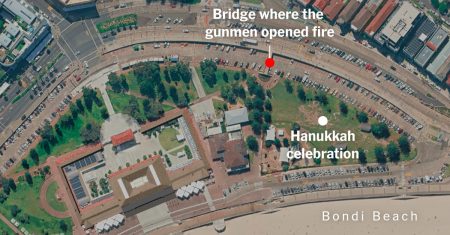The terse statement issued by the Kremlin following the phone call between Russian President Vladimir Putin and Azerbaijani President Ilham Aliyev encapsulates the complex and sensitive geopolitical landscape surrounding the downing of a Russian Mi-24 military helicopter over Armenia near the Azerbaijani border. While the Kremlin attributed the incident to a “tragic incident” occurring within Russian airspace, the surrounding circumstances, including the ongoing conflict between Armenia and Azerbaijan over the disputed Nagorno-Karabakh region, raise significant questions and highlight the delicate balance of power in the volatile South Caucasus. The downing of the helicopter, which resulted in the death of two crew members and the injury of another, underscores the risks of miscalculation and unintended escalation in a region rife with historical tensions and simmering conflicts.
Azerbaijan promptly admitted responsibility for the downing of the helicopter, attributing it to a “mistake” by its military operating in a highly tense environment. Baku’s swift acknowledgement of responsibility and its expression of condolences to Russia coupled with an offer of compensation aimed to mitigate potential repercussions and preserve its fragile relationship with Moscow. The Azerbaijani Defense Ministry stated that the helicopter was flying at low altitude at night, in close proximity to the Armenian-Azerbaijani border, during a period of intensified hostilities in the Nagorno-Karabakh region. These factors, according to Baku, contributed to the misidentification of the helicopter as an Armenian aircraft and ultimately led to its downing by a man-portable air-defense system (MANPADS). While Azerbaijan’s explanation seeks to portray the incident as an unfortunate accident, it raises questions about the efficacy of its command and control procedures and the potential for such “mistakes” to ignite a wider conflict.
The incident casts a shadow over Russia’s delicate balancing act in the South Caucasus. Moscow maintains a security alliance with Armenia through the Collective Security Treaty Organization (CSTO) and operates a military base in the country. Simultaneously, Russia has cultivated a strategic partnership with Azerbaijan, balancing arms sales and diplomatic engagement with both sides of the Nagorno-Karabakh conflict. This intricate web of relationships places Russia in a precarious position whenever violence erupts between Armenia and Azerbaijan, forcing it to navigate competing interests and maintain a semblance of neutrality. The downing of the Russian helicopter, regardless of intent, threatens to disrupt this carefully calibrated approach and test the limits of Moscow’s influence in the region.
The incident also highlights the volatile nature of the Nagorno-Karabakh conflict, a decades-long dispute that has periodically flared into intense fighting. The mountainous enclave, internationally recognized as part of Azerbaijan but populated primarily by ethnic Armenians, has been a source of tension and bloodshed since the collapse of the Soviet Union. The latest escalation of hostilities, coinciding with the helicopter downing, raises concerns about the potential for the conflict to spiral out of control, drawing in regional powers and potentially destabilizing the entire South Caucasus. The presence of Russian peacekeepers in the region, deployed following the 2020 war, underscores the fragility of the ceasefire and the ongoing risk of renewed conflict.
The downing of the Russian helicopter serves as a stark reminder of the dangers posed by miscalculation and miscommunication in conflict zones. The incident, regardless of whether it was a genuine mistake or a result of negligence, highlights the importance of clear communication channels and robust deconfliction mechanisms between military forces operating in close proximity. The absence of effective communication protocols, coupled with heightened tensions and the use of advanced weaponry, increases the risk of unintended escalation and the potential for devastating consequences. The incident underscores the urgent need for enhanced communication and cooperation between the parties involved to prevent similar incidents from occurring in the future.
Beyond the immediate implications for Russia, Armenia, and Azerbaijan, the incident underscores broader concerns about the proliferation of MANPADS and the potential for these weapons to be used in unintended ways. The relative ease with which these portable air-defense systems can be acquired and deployed poses a significant threat to both military and civilian aircraft. The incident underscores the need for greater international cooperation to control the flow of these weapons and prevent their use in destabilizing conflicts around the world. The downing of the Russian helicopter serves as a cautionary tale about the potential for even seemingly localized conflicts to have far-reaching consequences and highlights the need for sustained diplomatic efforts to prevent escalation and promote peaceful resolutions.









